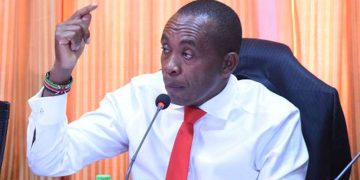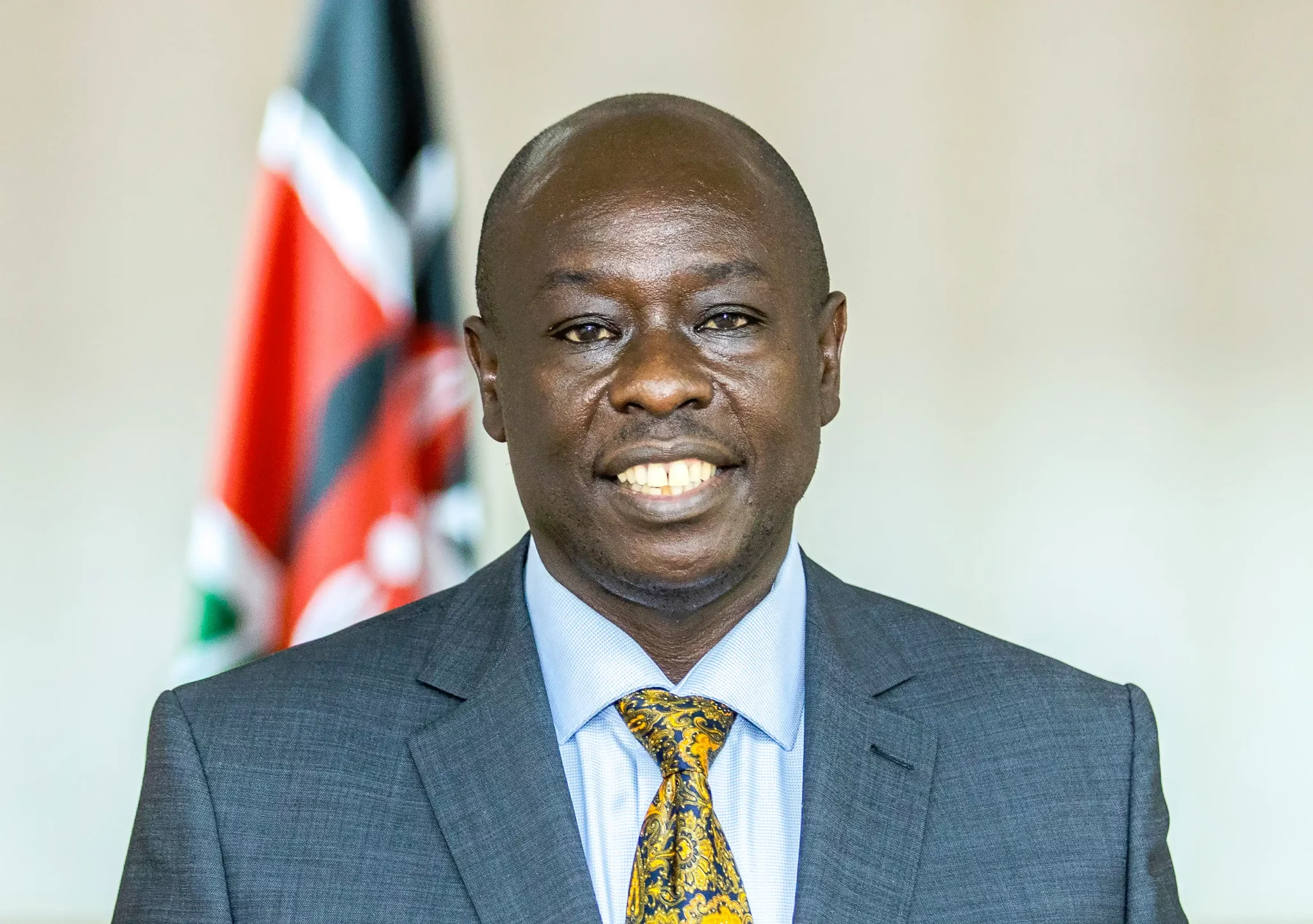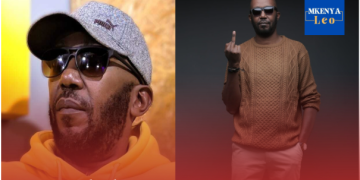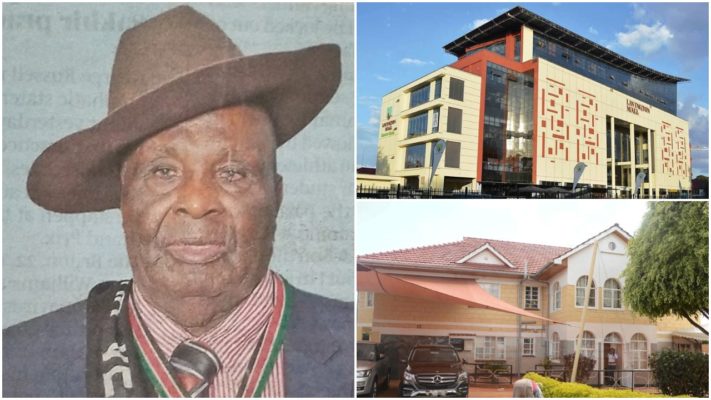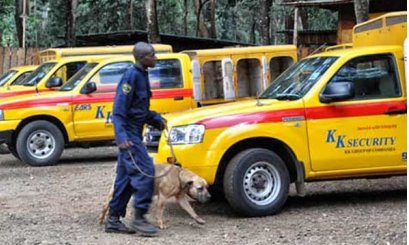President William Ruto has revealed a personal and promising development in the journey to elevate Kenyan football—his own son is studying for a Master’s degree in Sports Management with the goal of helping transform the national team, Harambee Stars.
Speaking passionately about the future of sports in Kenya, the President shared the touching story during a recent address, highlighting his family’s personal investment in uplifting local talent and sports infrastructure.
“I want to tell you, my own son is a great fan of football,” Ruto said. “He keeps telling me that we have to do something. And so that you know how serious he is, he has gone to do a Master’s in Sports Management because he wants to come and support you.”
The revelation has sparked interest and admiration across the country, with many Kenyans praising the move as a refreshing sign of hands-on leadership and genuine support for the sporting industry. In a country where football has long struggled with issues like poor funding, mismanagement, and lack of infrastructure, the President’s statement felt like a hopeful pivot toward a brighter, more professional future.
Ruto emphasized that this step reflects a wider vision held by the youth of Kenya, who are beginning to see sports not just as a pastime but as a powerful avenue for opportunity, growth, and national pride.
“Young people in Kenya see the potential and the opportunities that exist in sports,” he added. “Not just football, but across all sports disciplines.”
The president’s remarks come at a time when Harambee Stars are fighting to regain their competitive edge on the continental and international stage. While the team has shown flashes of brilliance, consistent progress has been hampered by limited support structures and inadequate professional development systems.
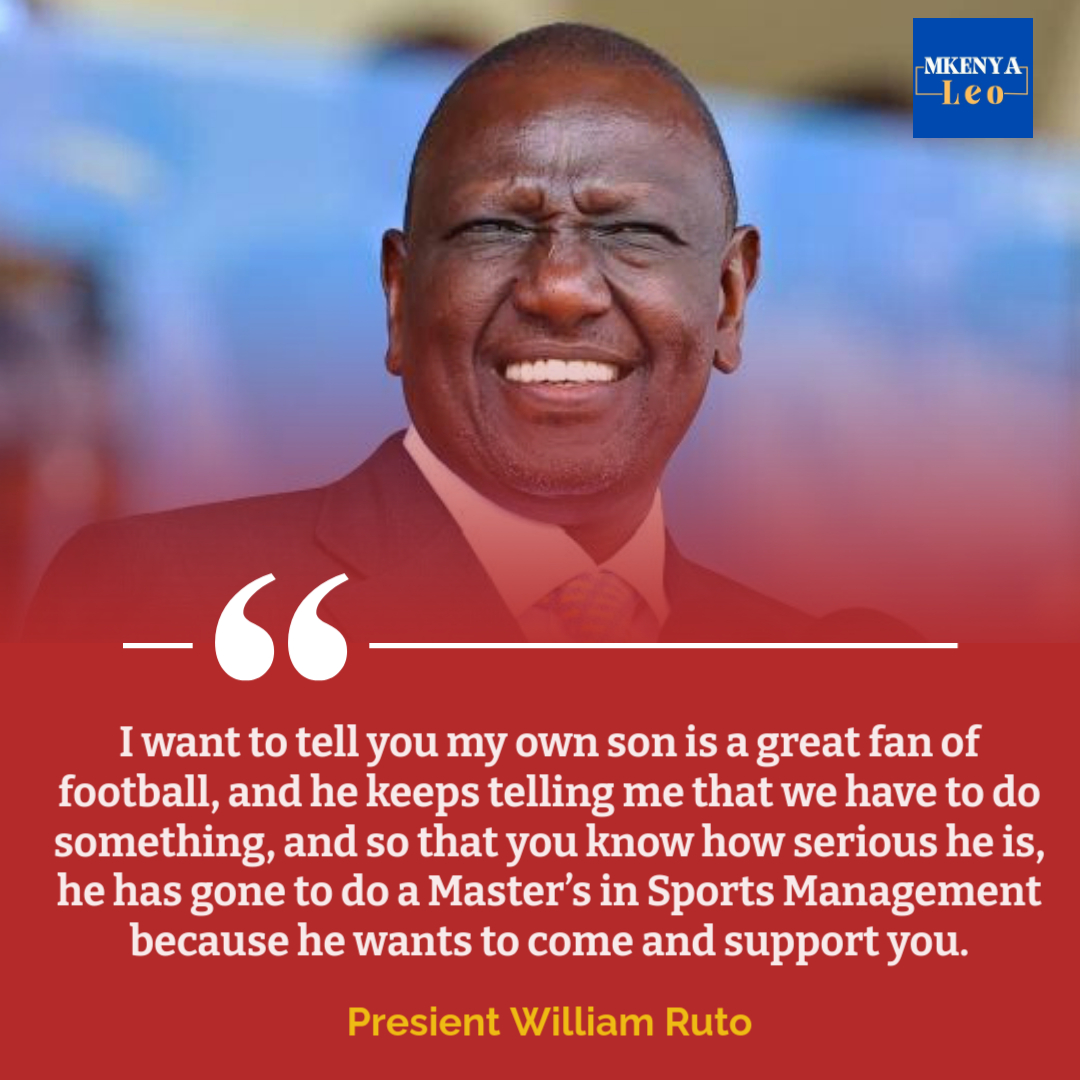
If Ruto’s son follows through with his intentions, his academic journey could eventually lead him into key administrative roles within Kenya’s football management—potentially injecting new energy, global best practices, and youth-driven innovation into the country’s football scene.
Kenyans on social media have reacted with cautious optimism, with some urging that the momentum should not just stay within the president’s circle but be expanded to support other young professionals with similar passion and qualifications.
“Let’s build a sports management ecosystem that includes everyone—talented youth, former athletes, and experienced minds,” one user posted. “But still, this is a great start. Football needs new brains.”
As Kenya continues to invest in sports as a viable economic sector, Ruto’s message signals a shift in how seriously the government is beginning to take sports—not just as entertainment but as a national asset. With young, educated minds ready to contribute, the future for Harambee Stars—and sports in Kenya—might finally be looking up.


